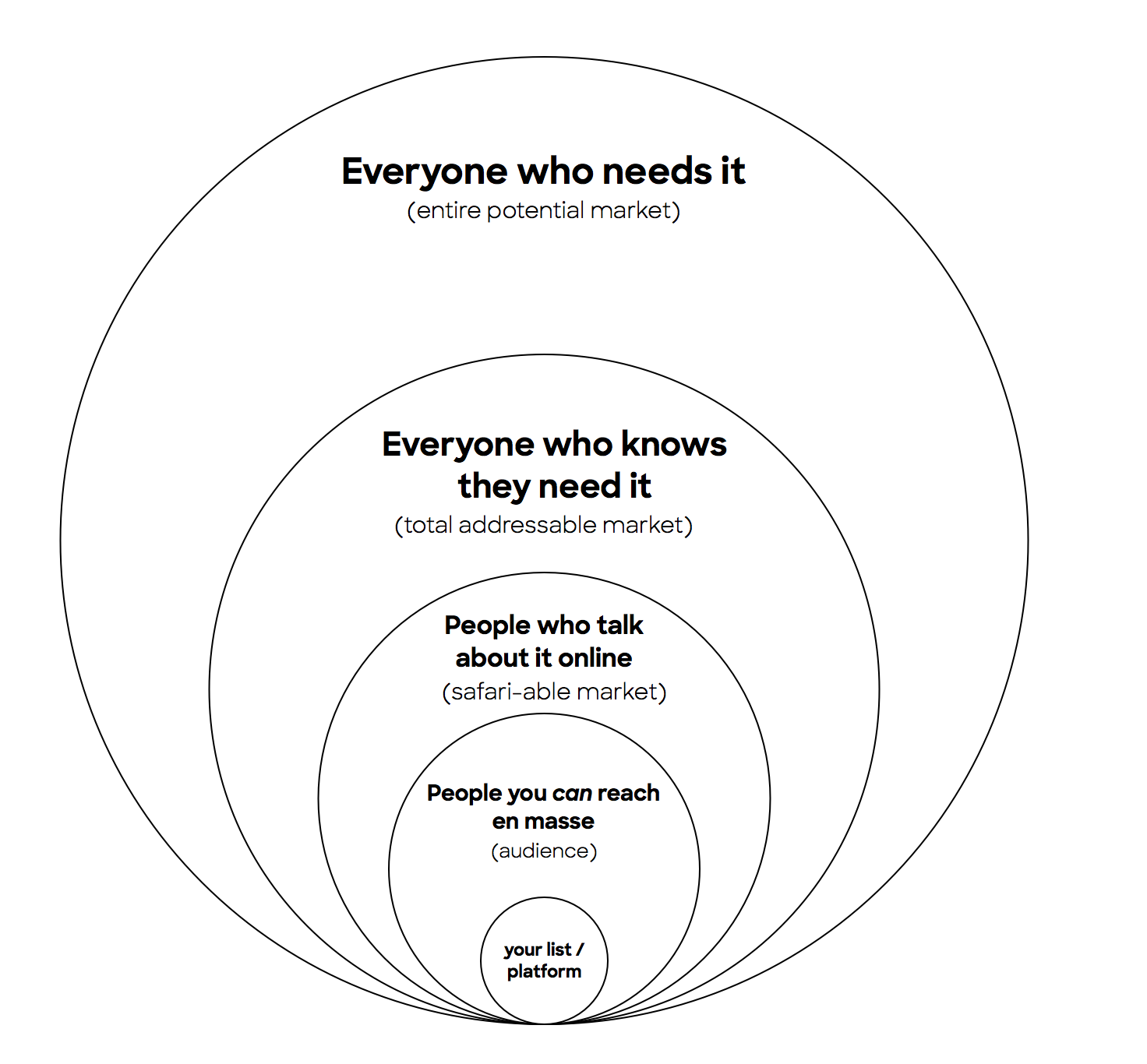What does "audience" mean?
I haven’t written on STB for about a year, and while that’s objectively not good, it’s also given me a lot of perspective… in the literal sense, I have a newer, different, distant viewpoint on what’s good, bad, and most crucially, missing.
And what I’ve realized is that a lot of the essays only make sense if you already know the system I work and think in: the way business works, the way it ought to work, why people buy things, and so on. It’s usually an undercurrent and never explicitly defined. I don’t have a glossary or 101 content. And I should.
Take audiences, for example
Just the plain English term “audience” confuses people. Much like the word “unicorn,” I used it before it was “cool” — or, at least, adopted by a wide group of folks in the hustle culture. (I used to use it as a joke bc unicorns are a myth. Then it came to mean billion-dollar valuations. Which are, alas, very real.)
Today everyone else uses “audience” to mean something completely different from what I do, and have done.
Today most people use “audience” to mean “your readers/listeners/subscribers.” Emphasis on YOUR, less so on audience. The key is possession. (I call that “platform.”)
I only ever used “audience” in the sense of group identity: “Ruby developers is an audience” — a group of folks who hang together under a specific umbrella, who share tools, ways of working, and worldviews (even if what they share is a long-standing fight about those things), who can be both studied and (for the large part) reached together efficiently.
I didn’t use the word “market” because just because people are in a group, or collected under a group identity, doesn’t mean they’re a market. Markets by definition buy things.
While working on this definition problem, I came up with a little nested circle chart. It’s not unlike the ones you’ll find for “total addressable market,” but I have changes…
My view of the wide world of groups, markets, and audiences
First off, there’s a much broader group of people than the so-called addressable market. However many people know they need a thing will always be much much smaller than the total number of people who could actually benefit from the thing. A tool for project management could be used by basically everyone who does anything – in every industry, and every hobby, and every personal life – but most of them aren’t interested, aren’t tool users, or aren’t willing or able to pay.
The people who know they need the thing are also never going to be a coherent group identity. They probably just use the tool and get on with their lives, generally speaking. Nobody walks around calling themselves “a project management tool user” and they don’t get together to talk about project management tools as a matter of sheer interest.
People who gather to talk about it online are an even smaller subset yet. They’re not necessarily power users, but they have a powerful interest (or a painful problem). They’re active and engaged. And, again, a much smaller group. Or rather… groups. Because “active Photoshop user” is also not an identity that brings people together except in a very few loose circumstances. (E.g. tutorial sites may bring in multiple groups, but they rarely form an engaged community.)
Audiences are a coherent group (even if the coherency is mainly an argument). A group hangs together and has things in common. If you pre-commit to doing stuff with, say, Photoshop, you’ll have to go to identity-specific — audience — watering holes, such as digital artists, photographers, web designers, etc. That’s where you’ll learn about how people use the tools to get work done, what they value, what they hate, what they share. That’s where you can reach a bunch of these folks effectively, at low-cost, with a targeted message tailored to their specific group.
Finally, your platform are people who know & listen to you. That’s your list, your subscribers, etc. You can’t create an audience… but you can grow your personal platform out of an audience. Rarely is this an identity (an exception is popular streamers, influencers, and youtube personalities, but even then, the folks who will call themselves “an X fan” as an identity is a tiny subset of the overall viewership). If your platform is scattered across a bunch of different audiences, you’re going to have a hard time persuading them with the specific messages that work so powerfully for a single group.
